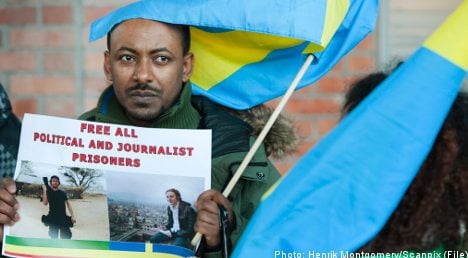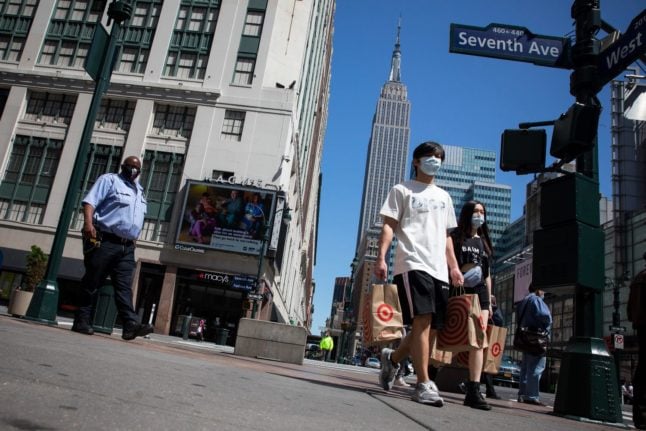“We are continuing to work at all levels and on different tracks to ensure their liberation as soon as possible,” Swedish state secretary for foreign affairs, Frank Belfrage, told the TT news agency, adding that the tracks included contacts with the United States and the European Union.
Reporter Martin Schibbye and photographer Johan Persson were arrested in Ethiopia’s Ogaden region on July 1 in the company of rebels from the Ogaden National Liberation Front (ONLF) after entering Ethiopia from Somalia.
“We of course consider this sentence to be extremely serious,” Belfrage said Tuesday, reiterating Swedish Prime Minister Fredrik Reinfeldt’s position that Schibbye and Persson were in Ethiopia on “a journalistic mission.”
An Addis Ababa court on Tuesday sentenced the pair to 11 years behind bars after they were found guilty last week of “supporting terrorism.”
Johan’s father, Kjell Persson, told AFP on the phone from Sweden that the trial had been difficult on the family.
“It was a tough time for us, but we met Johan four or five times and he’s taken it well, it’s good for us to see that,” he said.
“Last Friday we met and they were in good shape, they said what happened on Wednesday was no surprise.”
A small group of demonstrators gathered outside the Ethiopian diplomatic mission in Stockholm on Tuesday morning to protest the verdict.
Meanwhile, EU foreign policy chief Catherine Ashton voiced “serious concern” on Tuesday over the journalists’ sentences.
Ashton “notes with serious concern the judgment and sentencing of the two Swedish journalists Martin Schibbye and Johan Persson under the Ethiopian Anti-Terrorism Proclamation,” her office said in a statement.
“Their sentencing on terrorism related charges raises concerns about the freedom of media and expression in Ethiopia,” Ashton’s office said, noting that the two were conducting research as journalists.
“While recognising the Ethiopian judicial process, we hope that the two journalists can be released as soon as possible,” it said.
“The EU will continue to closely monitor this case and will continue our dialogue with the Ethiopian Government on press freedom and human rights.”
Swedish Foreign Minister Carl Bildt, who has come under fire for not doing enough to help the pair, was on holiday and only briefly commented on his official Twitter feed by hailing EU foreign policy chief Catherine Ashton’s condemnation of the sentence.
“Good EU statement on sentencing of two Swedish journalists in Ethiopia. We wanted the voice of EU to be heard today,” he wrote late Tuesday afternoon.
Swedish media revealed in September the pair was in the remote southeastern region of Ogaden, populated mainly by ethnic Somalis, to investigate the activities of a company affiliated to the Swedish oil firm Lundin Petroleum, which counted Bildt as a board member from 2000 until 2006 when he was appointed foreign minister.
The Swedish Union of Journalists condemned the jail term and called on Sweden to intervene.
“It is obvious that this is a political sentence,” the union’s president Jonas Nordling said in a statement.
“Now the Swedish government has the heavy responsibility of resolving this at the political level,” he added.
“The government must show that Sweden is doing everything possible to support and defend freedom of the press.”
Both journalists had admitted contact with the ONLF and to entering Ethiopia illegally, but rejected terrorism charges, which included accusations that they had received weapons training.
Persson said their meeting the ONLF contacts had been for professional reasons only, as part of an investigation into the activities of Swedish oil company Lundin Oil.
The ONLF has been fighting for independence of the remote southeastern Ogaden region since 1984, claiming they have been marginalised from Addis Ababa.



 Please whitelist us to continue reading.
Please whitelist us to continue reading.
Member comments